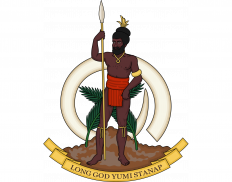Share
Print

Vanuatu has a Parliamentary democracy political system which is currently headed by a President who has primarily ceremonial powers and who is elected for 5-year terms by a two-thirds majority of an electoral college. This electoral college consists of Members of Parliament and the Presidents of Regional Councils.The President may be removed by the electoral college for gross misconduct or incapacity. The Prime Minister, who is the head of Government, is elected by a majority vote of a three-fourths quorum of the Parliament. The Prime Minister, in turn, appoints the Council of Ministers, whose number may not exceed a quarter of the number of Parliamentary representatives. The Prime Minister and the Council of Ministers constitute the executive Government.
The Parliament of Vanuatu is unicameral and has 52 members who are elected by popular vote every four years, unless earlier dissolved by a majority vote of a three-quarters quorum or by a directive from the President on the advice of the Prime Minister.
Vanuatu uses what is called "the Westminster model" of government. Like most Commonwealth countries, this is actually different in some important ways from the British system whose Parliament is at Westminster.
The Vanuatu form of Government is quite similar to other Commonwealth countries. What makes it different is the French influence. This is probably why the Head of State is called "President" and not "Governor". Unlike other Pacific states, the colonial Government never installed a local Government. whether British or French, so what has come out is designed especially for the need of Vanuatu. An example of that is the National Council of Chiefs (Malvatumauri) which is elected and has advisory under Articles 27 and 28 of the Constitution.
